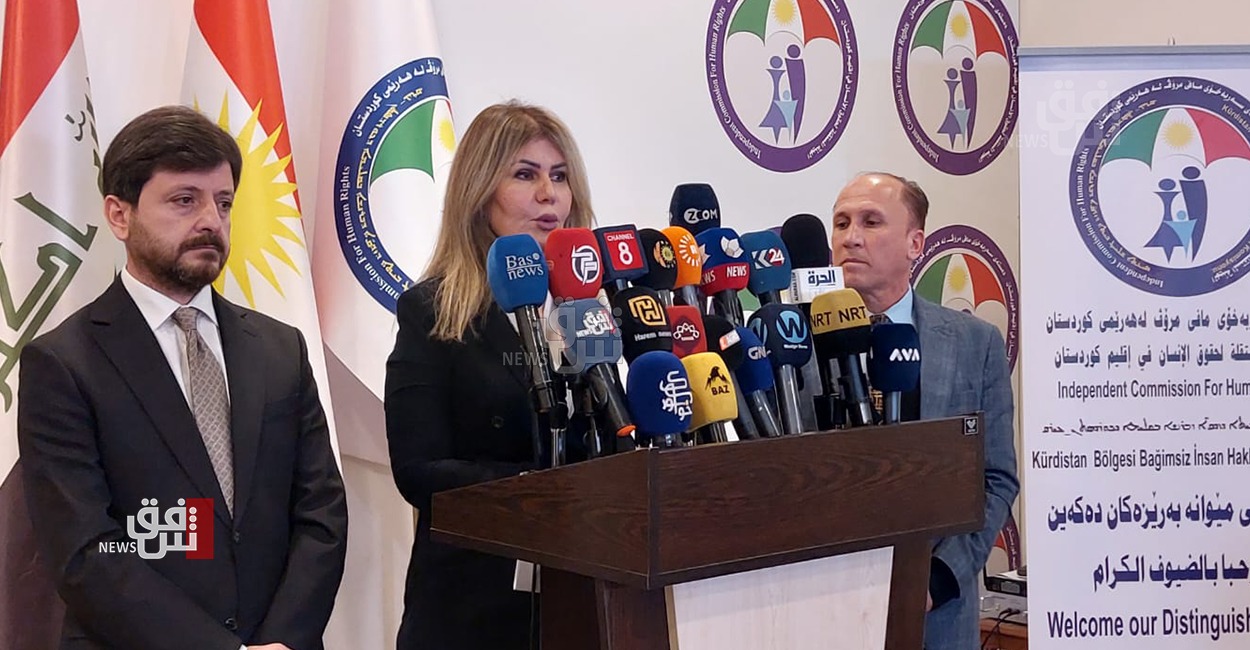Quota abolition a "stab" to minorities in Kurdistan: they call for court reversal

Shafaq News/ The head of the Independent Human Rights Commission in Kurdistan Region, Dr. Muna Yaku, appealed, on Wednesday, to the Supreme Federal Court to reverse its decision that eliminated the quota seats and the representation of minorities in the regional parliament, saying it was a "stab" to the minorities and an “infringement of their rights.”
Last week, the Federal Supreme Court, made several rulings on the Kurdistan Parliament's election law and declared the Kurdistan Region parliament's 11 minority seats "unconstitutional". It said the parliament has only 100 members, not 111 as before.
During a press conference covered by Shafaq News Agency, Yaku criticized political parties for prioritizing their conflicts over the representation of minorities like the Assyrians, Christians, and Turkmen in Iraq. She said, “their historical presence and contribution to the political and armed struggle for many years, denying them their right to represent themselves by themselves.”
She questioned the fairness of neglecting these ancient communities in political decisions, highlighting a recent controversial ruling by the Supreme Federal Court.
She Said, “this decision came without justification, which does not comply with the provisions of Article 43 fourth of the internal system of the Supreme Federal Court No. 1 for the year 2022".
Yaku noted, "the decision did not specify the constitutional violations that the Kurdistan legislator committed, as it referred to Articles 2 on first b and j, and Articles 16, 20, and 102, but it did not explain the nature of the violation", adding that "the decision did not mention the constitutional articles that were relevant to the subject of the lawsuit and that would have been fair to us as minorities, such as Articles 49 first paragraph, and 125".
Moreover, Yaku expressed disappointment with the Court's decision, which she viewed as “a setback for minority representation.” She criticized the “lack of clarity in citing constitutional violations and the failure to protect minority quotas, contrasting it with the secure 30% quota for women.” She called for “explicit acknowledgment of constitutional articles safeguarding minority rights.”
Yaku emphasized the importance of defending minority political participation and preserving national progress. She proposed three solutions. Firstly, “urging the Supreme Federal Court to explicitly respect Articles 49 and 125 of the constitution in its published decision, ensuring minority political rights in the Kurdistan Region's parliament.”
Second, “calling on the President of Iraq to uphold the constitution and represent all Iraqi people, including minorities, as outlined in Article 67.”
And her third suggestion, she said, “If the first two demands are not met, advocating for minority political parties, supported by other active groups in Kurdistan, to seek justice through Article 45 of the Supreme Federal Court's internal system, allowing for the reconsideration of decisions affecting minority rights.”
Furthermore, minority parties in Kurdistan issued recommendations to annul the Court's decision, criticizing the “transformation of the parliament into a predominantly Muslim body and the dissolution of the Electoral Commission.” The Chaldean, Assyrian, Turkmen, and Syriac communities in Kurdistan deemed the decision a violation of the Iraqi constitution.”
Noteworthy, the Kurdish election law, enacted in 1992 and revised in 2013, was challenged in the Iraqi federal court for being unconstitutional. The court consolidated the cases because of their similarity.
The law allocated 11 out of 111 seats in the legislature for minorities: five for Turkmen, with Assyrians, Chaldeans, Syriacs, and Armenians each having one seat.
The federal court replaced the Independent High Electoral and Referendum Commission of the Kurdistan Region with Iraq's Independent High Electoral Commission (IHEC) to manage the Region's elections, following its ruling that the parliament's term extension was unconstitutional. IHEC will supervise the elections until a new parliament establishes its own regional commission.